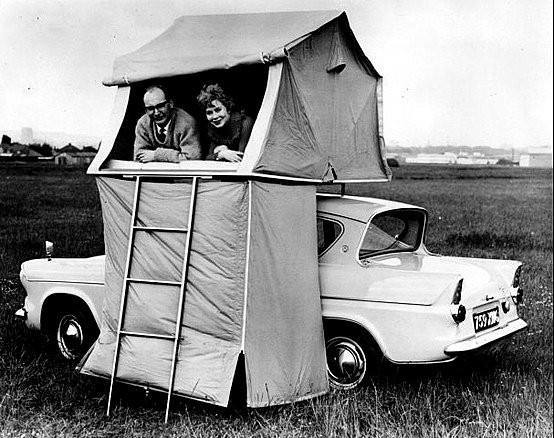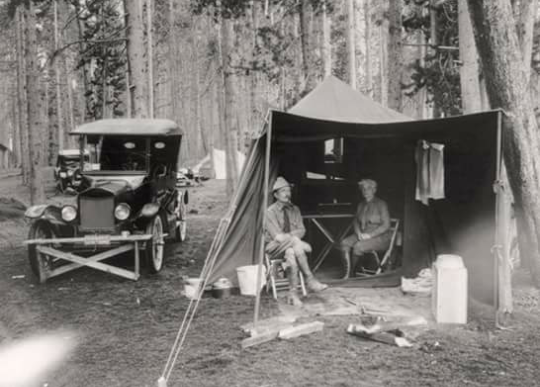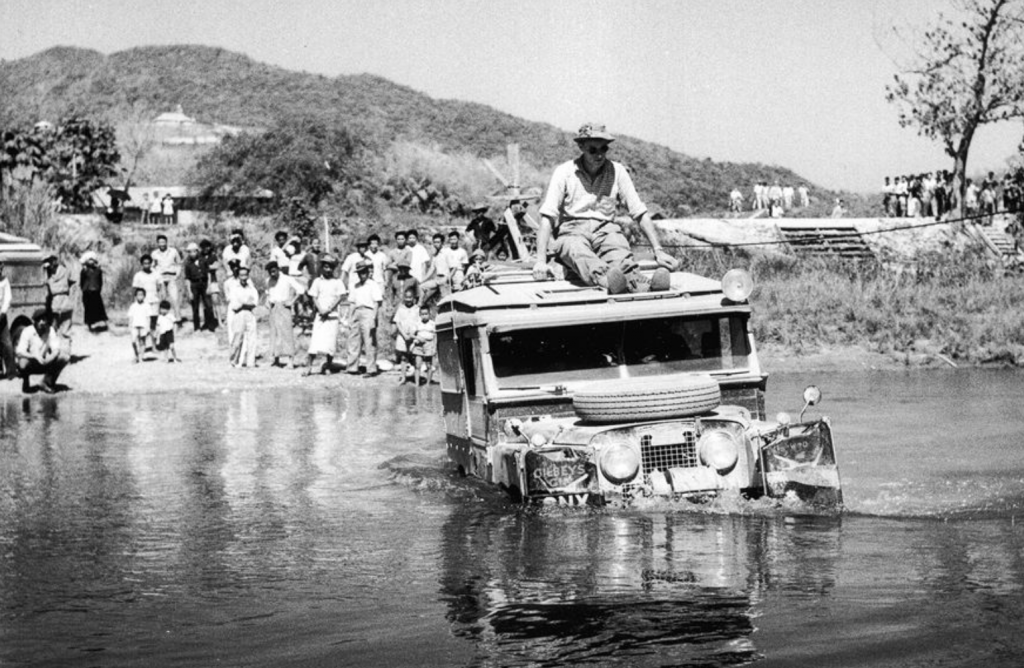“What is Overlanding?”
When we departed on our Pan American Highway adventure back in 2013 and told people we were ‘overlanding,’ many (if not all) had never heard of the term before. And frankly, neither had we – until we stumbled across several travel blogs, and the rest is, well, history.
The growth of the outdoor/car camping/off-roading industries since our departure (and subsequent return) has been exciting and explosive. Our feet firmly planted back on North American soil in 2017, we couldn’t believe the endless variety of new rooftop tents, wedge campers and vans. Building a platform in the back of your 4Runner became a mainstream endeavour – blueprints on Pinterest and YouTubers filming step-by-step instructions. Outside Online documented weekend warriors outfitting their backseat space as to avoid the now-dreaded ground tent. Not to mention the increasing NEED for heaps of ‘essential’ gear – the badges, the gismos, the widgets and doodads – the hallmarks of a ‘true’ overlander.
Over the last several years the term ‘overlanding’ has become muddled. If you have a rooftop tent are you an overlander? What is car camping then? What is the difference between a road trip and ‘overlanding’? If you have a van, does that mean you aren’t an ‘overlander’? If you go four-wheeling on the weekend that’s ‘overlanding’, right?

This long-format answer from Overland Journal is the one we describe when asked, “What is overlanding?”
Overlanding describes self-reliant adventure travel to remote destinations where the journey is the primary goal. Typically, but not exclusively, accommodated by mechanized off-highway capable transport (from bicycles to trucks) where the principal form of lodging is camping; often lasting for extended lengths of time (months to years) and often spanning international boundaries. While expedition is defined as a journey with a purpose, overlanding sees the journey as the purpose.
Overlanding is about exploration, rather than conquering obstacles. While the roads and trails we travel might be rough or technically challenging, they are the means to an end, not the goal itself. The goal is to see and learn about our world, whether on a weekend trip 100 miles from home or a 10,000-mile expedition across another continent. The vehicle and equipment can be simple or extravagant – they, too, are simply means to an end. History, wildlife, culture, scenery, self-sufficiency – these are the rewards of overlanding.
We have our own thoughts on what overlanding is, but the above answer (and the podcast below) does a great job of explaining why that is. Is there any trip we can do in North America that can be overlanding? Not as far as we’re concerned. What about our trip to Tuktoyaktuk? Still no, but we’re definitely getting closer if we can can spend time in the area to learn about, and experience, the local Inuvialuit culture.
If we point our truck in one direction without a plan to turn around for months or years we’re off to a good start. We’re getting somewhere if we make it to Mainland Mexico, and it’s starting to feel like an overland trip if we cross another border and start to explore Belize and/or Guatemala.
In our minds, the Pan-American road trip is a quintessential overland journey. It is also one that is the easiest to jump into with minimal planning, due to the fact that much of the paperwork (insurance and visas) can be obtained at each border instead of in advance. The trip is also fairly straightforward in that it can be done in a two-wheel drive vehicle just as easily as a four-wheel drive vehicle. We met countless people driving Vanagons, VW Busses, VW Bugs, two-wheel drive Sprinter vans, along with people riding motorcycles or bicycles. Freedom to travel and to explore was what brought us from the backpacking world into the overland world and obviously plays a role in what we consider overlanding. This also shows that our definition of overlanding has more to do with travelling than it does with recreational fourwheeling.
Scott Brady and Matt Scott dive deeper into the subject in the Overland Journal Podcast below.
Scott and Matt suggest that you ask yourselves these questions. If you answer yes, than you’re probably overlanding:
1. Am I traveling remotely?
2. Am I experiencing a culture unique from my own?
3. Am I visiting an under-explored or under-documented region?
4. Am I traveling self-supported in unfamiliar territories for multiple days, weeks, months, or years?

In addition, Graeme Bell of A2A Expedition nicely sums up the difference between off-roading and overlanding in his Adventure Journal article entitled “What’s The Difference Between An Off-Roader and Overlander?”
An off-roader uses his vehicle, usually highly modified and not his [or her] daily driver, for recreational purposes and perhaps the odd holiday, where he [or she] will venture into the realm of the overlander for a brief time. His [her] priority is to test the limitations and endurance of both himself [herself] and his [her] vehicle either in designated 4×4 areas or on a round trip to an adventure destination where [s]he will rely on the vehicle to take him [her] to remote places over difficult terrain.
The overlander’s objective is adventure travel over vastly changing terrain while testing his [or her] own courage and resourcefulness, and the vehicle’s endurance and reliability, all while maintaining some degree of comfort, usually over an extended period of time.
You might be wondering, “Why does this even matter? It’s just a term! Who cares?”
Defining terms like ‘overlanding’ enable us to have a common understanding of a word or subject. They allow us to all be on the same page when discussing or reading about an issue.
For example, if the term overlanding is used in place of rock crawling or off-roading, and we are called overlanders this presents a problem. We lack the skills, experience and technique that a rock crawler uses to conquer his or her goals. Our expertise is, in reality, in long-term travel to other countries. In essence, if we define ourselves as overlanders in this case, we are under-valuing the skills, experience and technique a rock crawler uses for a completely different set of obstacles. We specialize in border crossings, learning local languages, exploring foreign countries and living out of our vehicles, whereas a rock crawler’s aptitude lies in conquering a different set of obstacles – both in the design and engineering of the vehicle itself and driving ability.
In addition, our vehicle build is not designed to withstand a weekend rock crawling trip. We have modified our vehicle to take on conditions involving long-term wear and tear and liveability, not the vehicle’s capability to conquer short-term high impact obstacles.
Things can also become confusing in the industry, including in the marketing and sale of gear or vehicle parts – especially now as the term has become in vogue. A product labeled as appropriate for overlanders brings up many questions. Is the product appropriate for rock crawlers, off-roaders, overlanders or car campers? This distinction is important, as consumers are looking to purchase a piece of gear or equipment designed to function in a certain way.
Now, all of this is not to turn up our noses and point fingers and say “You aren’t an overlander!” We aren’t special or better than anyone because we crossed many borders and drove to Argentina – we just have a different set of skills and experience.
It’s like the difference between concrete and cement – although the terms are used interchangeably, they are, in fact, quite different.
At the end of the day, the best part about the rising popularity of the term overlanding is that people are inspired to get outside, go on an adventure and try something new. Plus, an expanding industry is a good thing for people like us that work within it. We can’t wait to see how things will grow and change in the future.
We aren’t experts on this subjects by any means – these are just conclusions we’ve made as a result of personal experiences. Feel free to leave a comment below – we would love to start a conversion and hear your thoughts on the subject!


Did South Africa to Morocco in 1970-1971 in an old VW can. Wild time. Now writing a novel and want to use the term Overlanding. Many giving me push-back on the term. Your article has convinced me to go with my gut. In vogue you say. Hot darn. Overhanding Africa it will be !
Well detailed and informative article on overlanding. It’s good that you put some bit of history for it and that “checklist” was nice
Great read on how it all started. But my guess is that even before, so many people have been doing it without it being given a name.